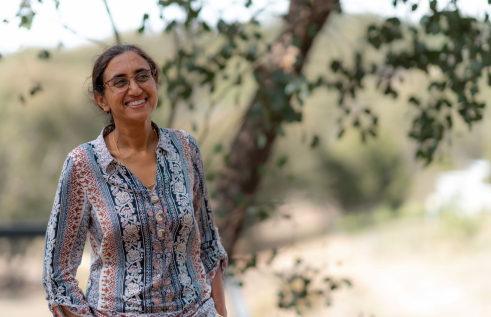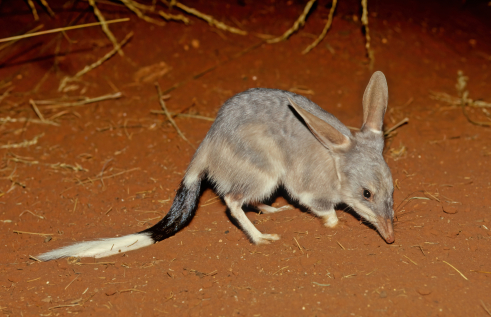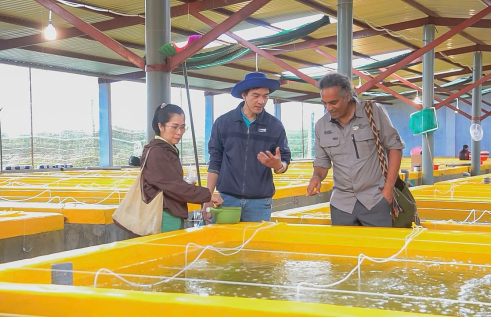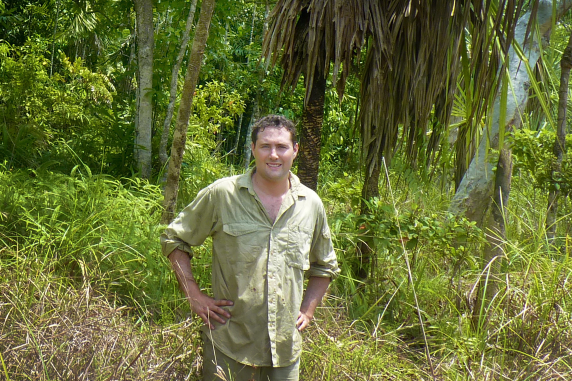news article
Research calls for cultural valuing of Aussie species
Indigenous values should be at the centre of conservation planning and decision making to ensure more equitable environmental and cultural outcomes, according to research by a Charles Darwin University PhD candidate.
Tom Duncan has been investigating the way that Indigenous groups and Traditional Owners are engaged in the management of threatened and culturally significant species.
Mr Duncan worked closely with Tiwi landowners and rangers to learn about Traditional Owner conservation values and priorities, and how those aligned with threatened species management and relevant legislation.
He said that although working in conservation had many benefits for Indigenous people, the institutional frameworks surrounding conservation work could limit the priorities of Traditional Owners.
“Undertaking conservation projects in partnership with scientists is one way that Traditional Owners and Indigenous rangers can look after country,” Mr Duncan said.
“For researchers wanting to work on Aboriginal lands, collaboration with Traditional Owners with vital knowledge and custodianship, is essential to the successful completion of their research.”
Mr Duncan said researchers should think beyond the biodiversity benefits of conservation to how biocultural values might be researched and managed to ensure equitable partnerships with Indigenous collaborators.
“For example, in Northern Australia, intense research effort is focused on the effect different fire regimes, in particular Indigenous fire practices, have on biodiversity and threatened species in particular.
“Yet, there has been little equivalent corresponding research on the impact different fire regimes have on species that are culturally important to Indigenous people.”
Improved cross-cultural project planning, as well as legislative changes, were potential ways of addressing limitations in existing conservation frameworks.
“Changing existing legislation to better protect and maintain Indigenous cultural heritage values in relation to significant species is one possible answer,” Mr Duncan said.
“Legislative change to list culturally significant species could lead to more resources becoming available to manage these important species more effectively.”
Tiwi Land Ranger Willie Rioli said it would be “great” if legislation acknowledged culturally significant species further.
“Each Indigenous community has their own unique cultural values – animals and plants that are important to them,” Mr Rioli said.
“I do think two-way learning is very important. Western science is important for us, Indigenous knowledge is important too.
“We all have to work in collaboration. Two-way learning and two-way management is the way to move forward together.”
Mr Duncan said he hoped the research would help to improve collaborative threatened species management by forming more equitable partnerships, delivering benefits for Indigenous and non-Indigenous collaborators. The research received funding from the Australian Government’s National Environmental Science Program.
Related Articles

Working with nature, not against it: How our economies can grow with the environment
Economic growth doesn’t have to come at a cost to the environment, and the ways in which this is possible will be on display at a global conference being held in Australia for the first time.
Read more about Working with nature, not against it: How our economies can grow with the environment
Stronger together: Bilby conservation efforts enhanced by Indigenous knowledge
One of the nation's most iconic and at-risk critters could benefit by combining Indigenous knowledge with western survey methods, according to a new study led by Charles Darwin University (CDU) in collaboration with the North Tanami Rangers and Traditional Owners from the community of Lajamanu.
Read more about Stronger together: Bilby conservation efforts enhanced by Indigenous knowledge
Changing the tide: New project aims to shift attitudes around fish welfare practices
Fish are often overlooked when the term “animal welfare” is used, but a new project is working to ensure happy fins are met with the same enthusiasm as cage-free eggs or grass-fed beef.
Read more about Changing the tide: New project aims to shift attitudes around fish welfare practices
